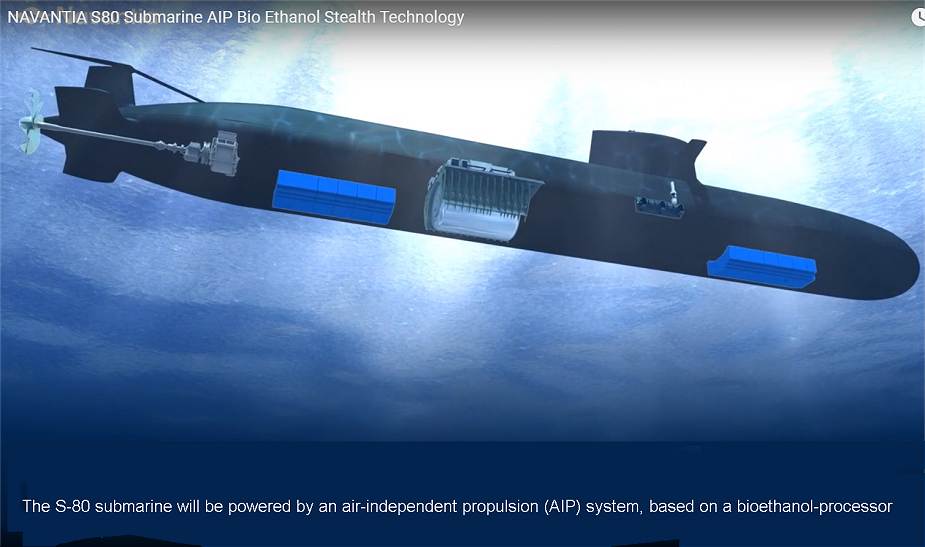Breaking news
Spanish Company Jalvasub Engineering to develop fuel-cell for Air-independent propulsion of S-80 submarine.
According to information published by the InfoDefensa website on December 22, 2020, the Spanish General Directorate of Armament and Material has signed a contract with the Spanish Company Jalvasub Engineering to launch the first phase of development for a new local-made fuel-cell for Air-independent propulsion (AIP) under the name of "Medusa 300" for the future S-80 submarines for the Spanish Navy.
Follow Navy Recognition on Google News at this link
 The S-80 submarine will be powered by an air-independent propulsion (AIP) system, based on a bioethanol-processor consisting of a reaction chamber and several intermediate Coprox reactors. (Picture source Navantia)
The S-80 submarine will be powered by an air-independent propulsion (AIP) system, based on a bioethanol-processor consisting of a reaction chamber and several intermediate Coprox reactors. (Picture source Navantia)
A budget of 960,000 Euro will be invested for this first phase of development. Air-independent propulsion (AIP) is a naval propulsion technology that allows a non-nuclear submarine to operate without access to atmospheric oxygen (by surfacing or using a snorkel). AIP can augment or replace the diesel-electric propulsion system of non-nuclear vessels.
According to the scheduled plan made by the company, the development of the new fuel-cell will take place until 2022 including analysis, test, functional evaluations to obtain a 5 kW prototype module.
The S-80 is a new generation of submarines in production for the Spanish Navy by the national company Navantia. A total of for S-80 have been ordered by the Spanish Navy.
The S-80 submarine will be powered by an air-independent propulsion (AIP) system, based on a bioethanol-processor consisting of a reaction chamber and several intermediate Coprox reactors. Provided by Hynergreen from Abengoa, the system transforms the bioethanol (BioEtOH) into high purity hydrogen. The output feeds a series of fuel cells from UTC Power company.
The Reformator is fed with bioethanol as fuel and oxygen (stored as a liquid in a high-pressure cryogenic tank), generating hydrogen and carbon dioxide as sub-products. The produced hydrogen and more oxygen are fed to the fuel cells.




























